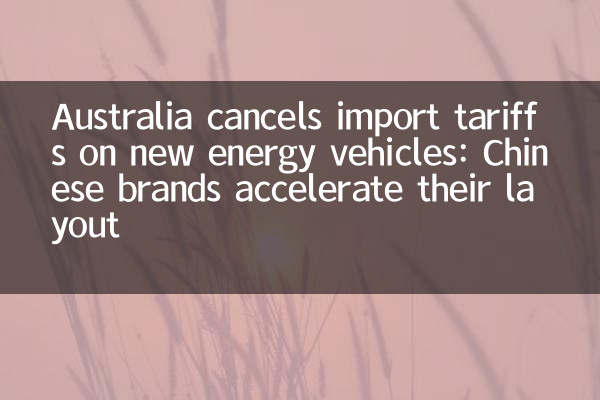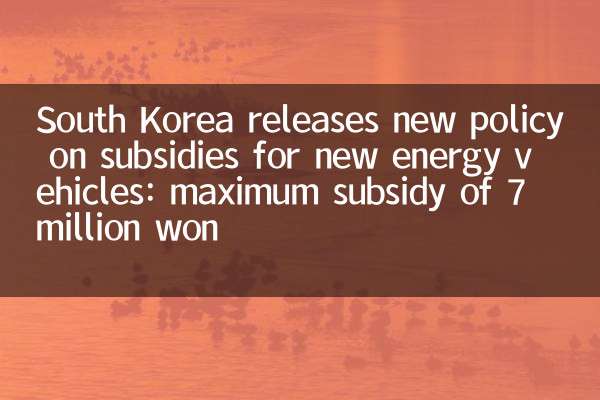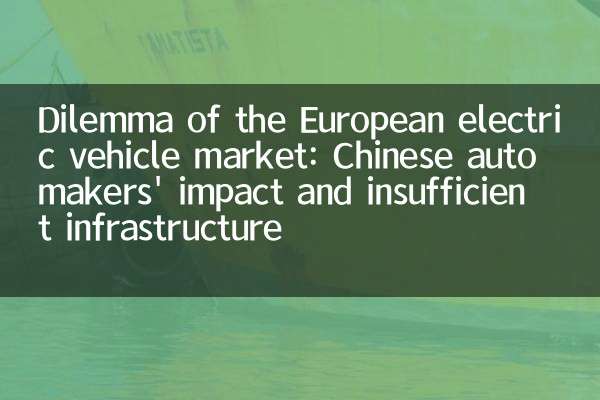Australia cancels import tariffs on new energy vehicles: Chinese brands accelerate their layout
Recently, the Australian government announced the abolition of import tariffs on new energy vehicles, and this policy adjustment has quickly become a hot topic in the global automotive industry. As the global leader in the new energy vehicle industry, Chinese brands are accelerating their layout in the Australian market and seizing this emerging opportunity. This article will combine hot data from the past 10 days to analyze policy impact and strategic trends of Chinese brands.
1. Policy background and market reaction

The Australian government announced on May 15 that it will completely cancel import tariffs on new energy vehicles from July 1, 2024, and at the same time reduce relevant taxes and fees. This move aims to promote the transformation of green energy, with the goal of achieving 30% of new energy vehicle sales by 2030. The following are the core contents of the policy:
| Policies | Specific content |
|---|---|
| Tariff adjustments | Import tariffs dropped from 5% to 0% |
| Implementation time | July 1, 2024 |
| Additional offers | Registration fee reduction of 50% |
After the news was announced, the stock prices of Australian local car dealers and importers generally rose, among which new energy vehicle supply chain-related companies rose significantly. Chinese brands such as BYD and NIO responded quickly and announced that they would increase their investment in the Australian market.
2. China's brand layout data
According to statistics, China's new energy vehicles in Australia's market share in the first quarter of 2024 has reached 18%. With favorable policies, many brands plan to expand their channels within the year. Here are the recent actions of major brands:
| brand | Latest News | Target sales (2024) |
|---|---|---|
| BYD | 3 new direct stores | 15,000 units |
| NIO | Build the first battery swap station | 5,000 units |
| Xiaopeng | Signed 10 dealers | 8,000 units |
3. Analysis of market competition pattern
The Australian new energy vehicle market has been dominated by Tesla for a long time, with a market share of 45% in 2023. As Chinese brands enter, the competitive landscape is being reshaped:
| brand | Market share in 2023 | Market share in Q1 2024 |
|---|---|---|
| Tesla | 45% | 38% |
| BYD | 8% | 12% |
| modern | 11% | 9% |
Price advantage is the core competitiveness of Chinese brands. Take BYD Atto 3 as an example. Its price is about 40,000 Australian dollars (including tax), which is 15% lower than the Tesla Model Y of the same level. In addition, Chinese brands continue to make efforts in intelligent configuration and localized services, such as NIO plans to establish user centers in Sydney and Melbourne.
4. Industry impact and future prospects
The annual sales of new energy vehicles in the Australian market are about 50,000. Under the stimulus of policies, institutions predict that the scale will exceed 100,000 vehicles in 2025. Chinese brands are expected to account for more than 30%. Here are the key trend forecasts:
| field | 2024 expectations | 2025 expectations |
|---|---|---|
| Market size | 70,000 vehicles | 100,000 vehicles |
| Charging facilities | 500 new units | Covering 80% of major cities |
| Chinese brand share | twenty two% | 32% |
Experts pointed out that Chinese brands need to pay attention to localized operations and after-sales system construction, and at the same time deal with fierce competition among European and American brands. With the deepening of the RCEP agreement, China-Australia's new energy vehicle trade is expected to become a new highlight of bilateral economic and trade cooperation.
Overall, the Australian market is becoming an important test site for China's new energy vehicles to go overseas. The superposition effect of policy dividends and market demand will have a profound impact on the global automobile industry structure.

check the details

check the details